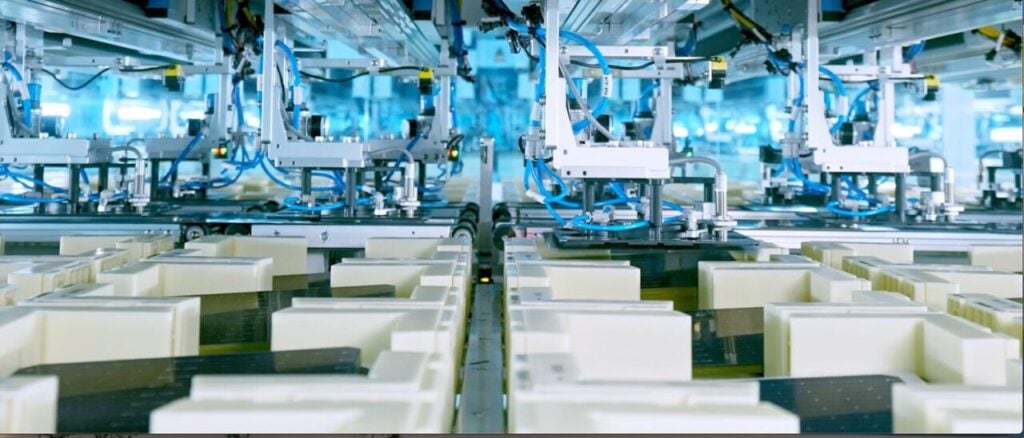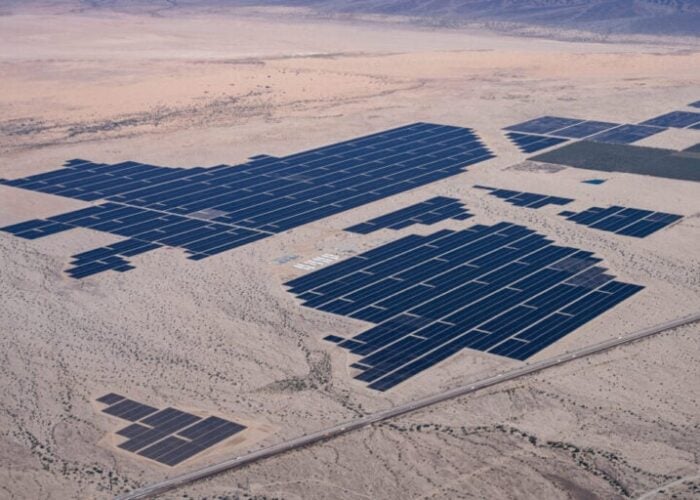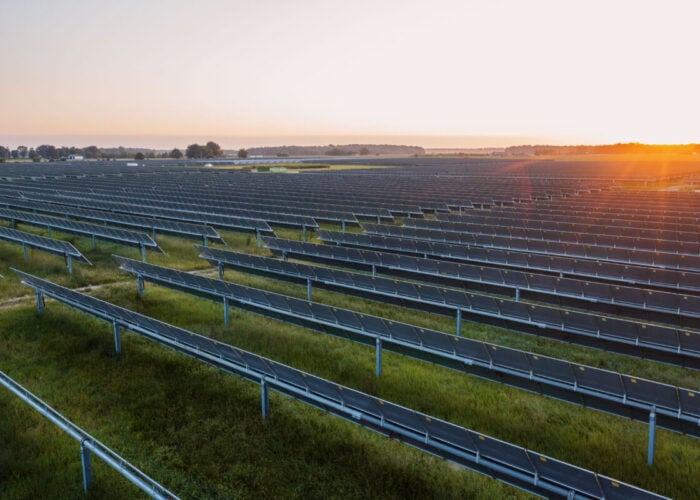
Japanese cell and module manufacturer Toyo Solar has announced plans to build a 2GW module manufacturing plant in the US, which it plans to commission next year.
The company, a subsidiary of fellow Japanese manufacturer Vsun Solar, will produce tunnel oxide passivated contact (TOPCon) modules at the new facility, and announced the plan in its half-year results. It noted that, in the first half of 2024, it had provided 985MW of cells to predominantly US projects, and it will build upon this relationship with its new manufacturing facility.
Unlock unlimited access for 12 whole months of distinctive global analysis
Photovoltaics International is now included.
- Regular insight and analysis of the industry’s biggest developments
- In-depth interviews with the industry’s leading figures
- Unlimited digital access to the PV Tech Power journal catalogue
- Unlimited digital access to the Photovoltaics International journal catalogue
- Access to more than 1,000 technical papers
- Discounts on Solar Media’s portfolio of events, in-person and virtual
Toyo Solar plans to invest US$100 million into the new facility, and expects to recoup the majority of this investment within 12 months of the project’s commissioning, due to supportive legislation currently in place in the US.
With the Inflation Reduction Act (IRA) offering tax credits for companies contributing to manufacturing in the clean energy sector, Toyo solar expects to receive tax credits equal to US$12/m2 of wafers produced, alongside US$0.04/watt of cells and US$0.07/watt of modules. The company expects to produce 1.4GW of modules in the factory’s first year of production—before scaling up to 2GW of annual production capacity—and this output to generate around US$84 million in tax credits.
Looking ahead, Toyo Solar also expects to begin production of cells in the US in the first half of 2026, and has announced plans to build a wafer slicing facility in the country, but has not yet put a date on this project.
The announcement follows significant investment into the US solar manufacturing sector. Earlier this year, the US Department of Energy (DOE) announced US$71 million in financing for silicon and thin-film manufacturing initiatives in the country, and leading Swiss manufacturer Meyer Burger drew headlines over the summer for closing down a plant in Germany, to open a new manufacturing facility in Arizona. At Intersolar 2024, CEO Gunter Erfurt told PV Tech Premium that “history has proven us right” with regards to this shift from Europe to the US.
However, last week Meyer Burger announced that it would scrap a proposed cell manufacturing plant in Colorado as the facility had become “no longer financially viable.” While this decision was motivated as much by Meyer Burger’s own financial struggles as the perceived unviability of solar manufacturing in the US, the loss of such significant private investment into the US manufacturing sector, prior to Toyo Solar’s investment, was a significant blow.
Toyo Solar posts strong financial results
The news follows an impressive first half for Toyo Solar, which saw its net income jump from a loss of US$1.9 million in the first half of 2023 to a gain of US$19.6 million in the first half of 2024. The company posted a gross margin of 19.3%, as income from its operations soared from a loss of US$1.7 million to US$22.5 million from one six-month period to the next.
This positive performance follows a number of encouraging developments for the company. In February, Vsun Solar signed a long-term polysilicon supply agreement with South Korean polysilicon producer OCI, and in April, the company commissioned a 4GW silicon wafer plant in Vietnam.
However, these positive developments could be short-lived, especially for a company such as Toyo Solar that wishes to involve itself in the US market, as there is growing appetite for tariffs on solar products sourced from Southeast Asia. Earlier this year, the American Alliance for Solar Manufacturing Trade Committee called on the Department of Commerce (DOC) to impose tariffs on products sourced from Southeast Asian countries beyond China, due to concerns that Chinese companies were ‘dumping’ products in neighbouring countries to sidestep trade restrictions currently in place between the US and China.
The committee alleges that cell imports from Vietnam to the US increased by 39% between April and August of this year, and the potential disruption of this trend caused by the implementation of new tariffs could have a significant impact on companies such as Vsun Solar and Toyo Solar, which are active in Vietnam.







